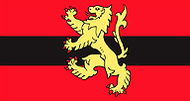Related Research Articles

The governor of Hong Kong was the representative of the British Crown in Hong Kong from 1843 to 1997. In this capacity, the governor was president of the Executive Council and commander-in-chief of the British Forces Overseas Hong Kong. The governor's roles were defined in the Hong Kong Letters Patent and Royal Instructions. Upon the end of British rule and the handover of Hong Kong to China in 1997, most of the civil functions of this office went to the chief executive of Hong Kong, and military functions went to the commander of the People's Liberation Army Hong Kong Garrison.

Field Marshal Sir John Lyon Chapple, was a British Army officer who served as Chief of the General Staff (CGS), the professional head of the British Army, from 1988 to 1992. Early in his military career he saw action during the Malayan Emergency and again during the Indonesia–Malaysia confrontation and later in his career he provided advice to the British government during the Gulf War.

Major General Christopher Michael Maltby, was a senior officer in the British Indian Army who served as Commander of British Troops in Hong Kong in 1941 before the Japanese invasion of Hong Kong, after which he became a prisoner of war.
The Deputy Chief of the Defence Staff is a senior British military officer who reports to the Chief of the Defence Staff and Vice-Chief of the Defence Staff.

Lieutenant General Sir Edric Montague Bastyan, was a senior British Army officer, who became Governor of South Australia from 4 April 1961 until 1 June 1968 then Governor of Tasmania from 2 December 1968 until 30 November 1973. He was the last British person to be governor of either state.

Lieutenant-General William Staveley was a British Army officer who fought in the Peninsular War and later became Commander and Lieutenant Governor of Hong Kong.

General Sir Charles William Dunbar Staveley was a British Army officer.
Major-General Sir William Julius Gascoigne was a British Army officer and served as General Officer Commanding the Militia of Canada from 1895 to 1898.

Scottish Command or Army Headquarters Scotland is a command of the British Army.

Eastern Command was a Command of the British Army.
Lieutenant-General Sir Oswald Cuthbert Borrett, was a British Army officer who served as Commander of British Troops in China and Lieutenant of the Tower of London.
The Coronation Honours 1911 for the British Empire were announced on 19 June 1911, to celebrate the Coronation of George V which was held on 22 June 1911.
The 1908 Birthday Honours for the British Empire were announced on 28 June, to celebrate the birthday of Edward VII.
British Troops in Egypt was a command of the British Army.
The Queen's Birthday Honours 1900 were announced on 23 May 1900 in celebration of the birthday of Queen Victoria. The list included appointments to various orders and honours of the United Kingdom and British India.
The Queen's Birthday Honours 1899 were announced on 3 June 1899 in celebration of the birthday of Queen Victoria. The list included appointments to various orders and honours of the United Kingdom and British India.
The 1893 Birthday Honours were appointments by Queen Victoria to various orders and honours to reward and highlight good works by citizens of the British Empire. The appointments were made to celebrate the official birthday of The Queen, and were published in the London Gazette on 2 June 1893 and in The Times on 3 June 1893.
The 1894 Birthday Honours were appointments by Queen Victoria to various orders and honours to reward and highlight good works by citizens of the British Empire. The appointments were made to celebrate the official birthday of The Queen, and were published in the London Gazette on 25 May 1894. and in The Times on 26 May 1894.
The 1895 Birthday Honours were appointments by Queen Victoria to various orders and honours to reward and highlight good works by citizens of the British Empire. The appointments were made to celebrate the official birthday of The Queen, and were published in The Times on 25 May 1895 and in The London Gazette on 25 May 1895 and on 11 June 1895.
The 1928 Birthday Honours were appointments by King George V to various orders and honours to reward and highlight good works by citizens of the British Empire. The appointments were made to celebrate the official birthday of The King, and were published in The London Gazette on 4 June 1928.
References
- ↑ Legislative Council
- ↑ British and Indian armies on the China coast 1785–1985 by Harfield, A G, Published by A and J Partnership, 1990, Pages 483–484 ISBN 0-9516065-0-6
- ↑ Army Commands Archived July 5, 2015, at the Wayback Machine
- ↑ "No. 27586". The London Gazette . 11 August 1903. p. 5074.
- ↑ "No. 27627". The London Gazette. 18 December 1903. p. 8338.
- ↑ "No. 27946". The London Gazette. 4 September 1906. p. 6015.
- ↑ "No. 28392". The London Gazette. 5 July 1910. p. 4777.
- ↑ "No. 28831". The London Gazette. 15 May 1914. p. 3927.
- ↑ "No. 29074". The London Gazette (4th supplement). 18 February 1915. p. 1685.